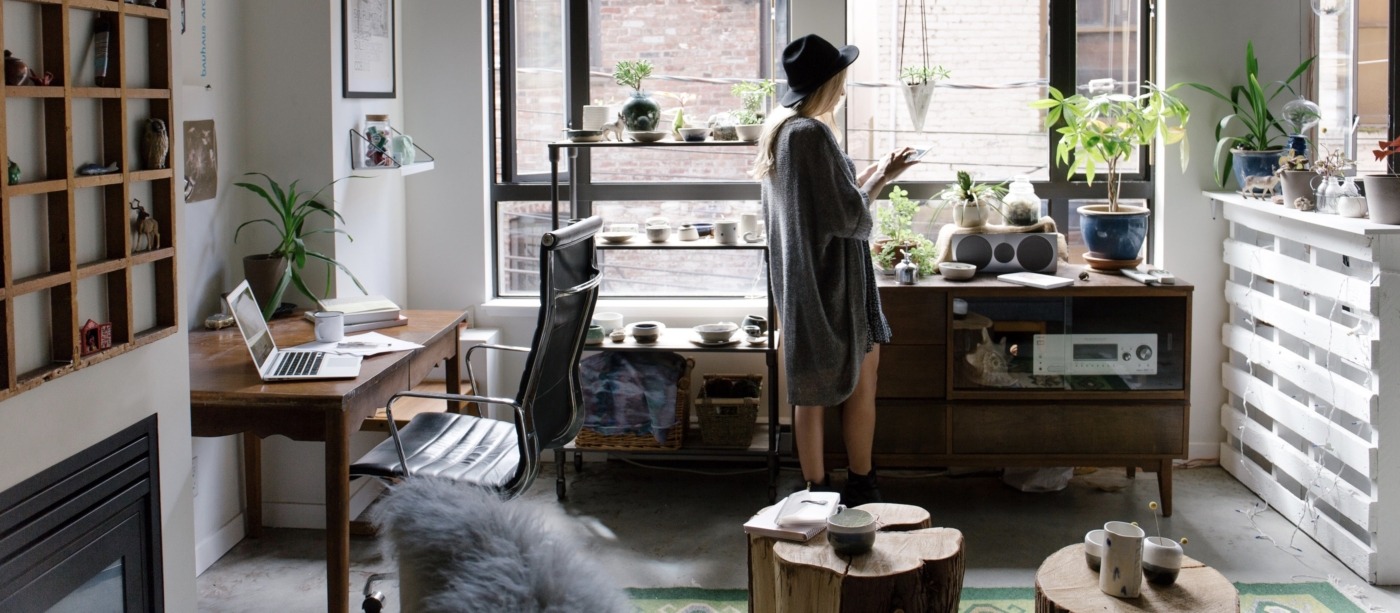The Enterprise Strikes Again!
Economists have declared that the Coronavirus has caused a global recession. A typical lockdown week in mid-May reduced the normal economic activity by 30% from February 2020. Almost 60% of operating businesses have reported a fall in revenue and unemployment is at an all time high. However, this setback does not stop British innovators and entrepreneurs from creating opportunities for themselves while working from home. Some of the most successful businesses today were started in previous recessions – like Uber and Just Eat. The challenges of starting in this particular economic recession are that entrepreneurs will have limited access to resources and will have to develop their projects mostly from home. Yet, this setback could be looked at as an opportunity for involving the entire family into your project, and reducing the time and money spent on commute and office space.
The lockdown has seen the emergence of many creative business models, like country’s first face mask dispensing machine started by Essex-based businessman, Adam Freeman. The entrepreneur realised that face masks are going to be an extremely important part of our lives in the coming months, and he decided to modify vending machines to sell fashion-forward masks. The masks costs about £5 to £8 and are customisable to feature a favourite band or a team. This is also a time where it could be an opportunity to introduce your hidden talents to your community, whether it is a traditional family recipe being passed on from generation to generation or a new dish that you just learnt.
Some of the most successful businesses today were started in previous recessions.
The lockdown has witnessed the emergence of many home-based businesses, especially eateries like ‘Home Based Bakeries’, which produces goods on demand in contrast to a retail baker that produces in advance. The advantages of running a home-based bakery which produces goods on demand is that it frees the entrepreneur from loss incurred by low sale of goods and wastage. It is also a great way of solving the food-waste problem that many developed nations face.
Other business on the rise during the lockdown include those making natural beauty products and home-made soaps. In the age of beauty products filled with potentially harmful chemicals, the demand for natural, hand-made soap and beauty products is ever increasing. Sandra Brown Pinnock, founder of Primal Beauty Natural, a company that produces Natural Beauty Products, has experienced a 49% rise in their online sales. The advantage of this industry is that there is nothing more desirable than having a soap or a cosmetic product with a homely or herbal touch. Making soap at home is a practice that could be easily learnt and turned into an overnight functional business.
Many ‘lockdown start-ups’ are worried about their presence in a post-lockdown and a post-Covid-19 world and many are not sure whether to pursue and grow their business or to return to their usual routine.
The lockdown has also seen many services move from physical, in-person sales and events by self-employed individuals to a virtual platform; the most creative example of which is Shada Lambert, who describes herself as an international career nanny and sleep and potty Training. Before the lockdown, she would offer in-house consultations and counselling to multiple families, however in the lockdown, she has switched to virtual classes to assist new parents to cope with the needs of their children.
However, these new emerging businesses do come with their problems. Many ‘lockdown start-ups’ are worried about their presence in a post-lockdown and a post-Covid-19 world and many are not sure whether to pursue and grow their business or to return to their usual routine. There is anxiety about expanding their businesses as well since many businesses are entirely home-run with assistance from family members and proprietors are not sure about whether to continue building the business by hiring new employees. The other worries of home-run businesses are that they are not registered companies and there are apprehensions about registering and operating them as a business unit in a residential area which could lead to fines and excess taxes. Despite these shortcomings, it can not be denied that such start-ups have helped people in generating income in a lockdown and with some support, many of them can survive going into the future, albeit as side hustles.

Comments